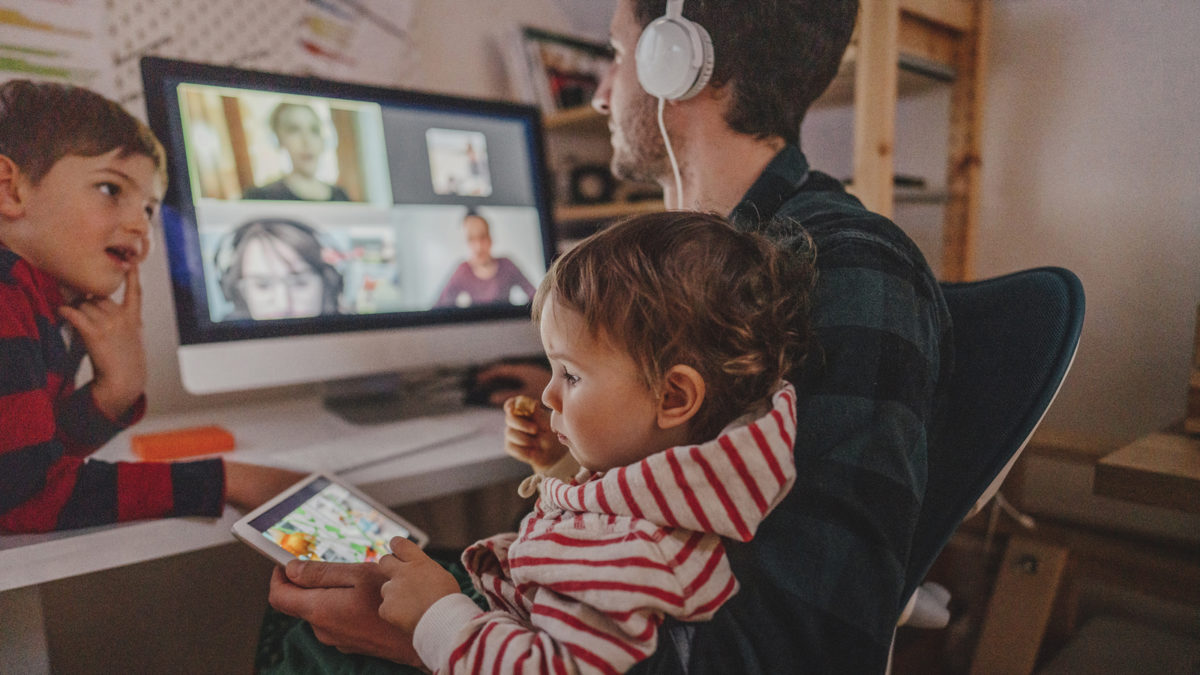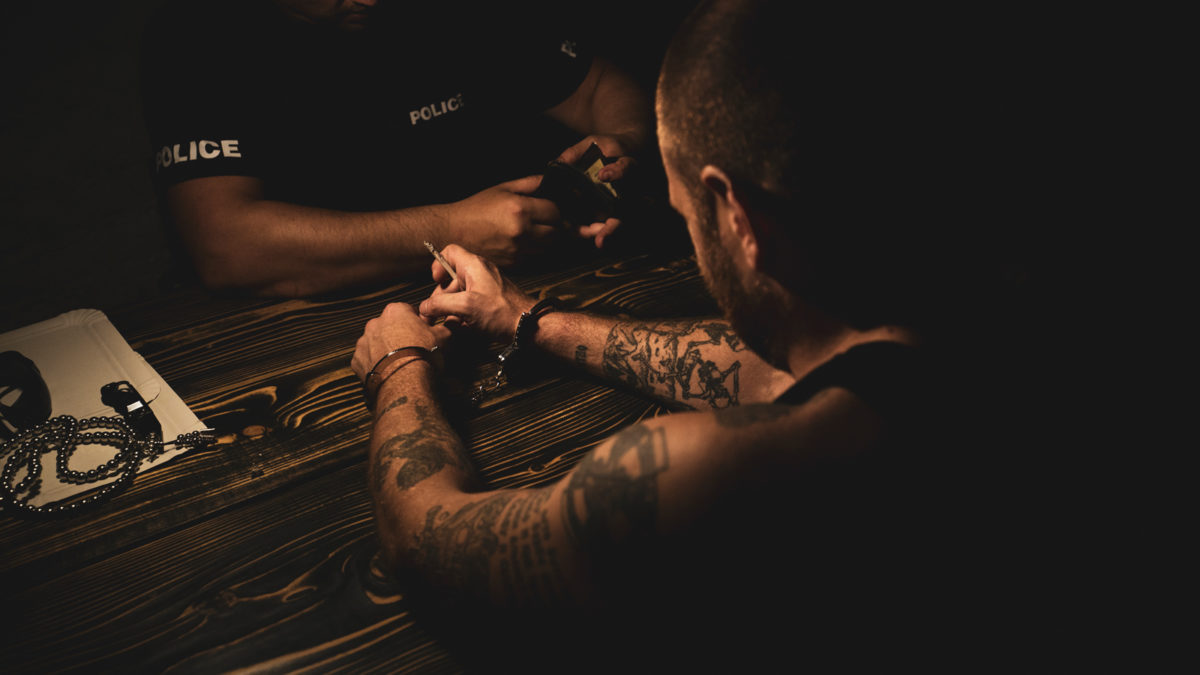
Pro Bono Support to Communities in Need
A Survey of Free Monthly Statewide Clinics for Self-Represented Parties
November 2020
Download This Article (.pdf)
The trend lines are unmistakable: self-represented litigants are a permanent and growing portion of the courts’ user base. The roles of judges and court clerks concerning self-represented parties have undergone a sea change over the past 15 years.1 Since at least the 1990s, courts in the United States have risen to the challenge posed by the increasing number of litigants who are representing themselves in court.2
Colorado has felt the same pressures as self-represented litigants continue to appear in court in large numbers. Each year since 2013, at least a half million Coloradans have gone to court without a lawyer.3 In cases involving self-represented litigants, judges spend more time explaining basic legal and court processes,4 and the demands on court resources increase at every level. Although the great majority of cases involving self-represented litigants are factually and legally uncomplicated, many self-represented litigants need help navigating through an unfamiliar and procedurally complex system.5
This article provides a survey of free legal clinic programs that can help self-represented litigants prepare for court, especially as the pandemic creates broader public legal needs. Free legal clinics are no substitute for in-person representation by an attorney, but these clinics meet some needs of self-represented parties in navigating the court process, especially where the issues and procedures are not complex.6
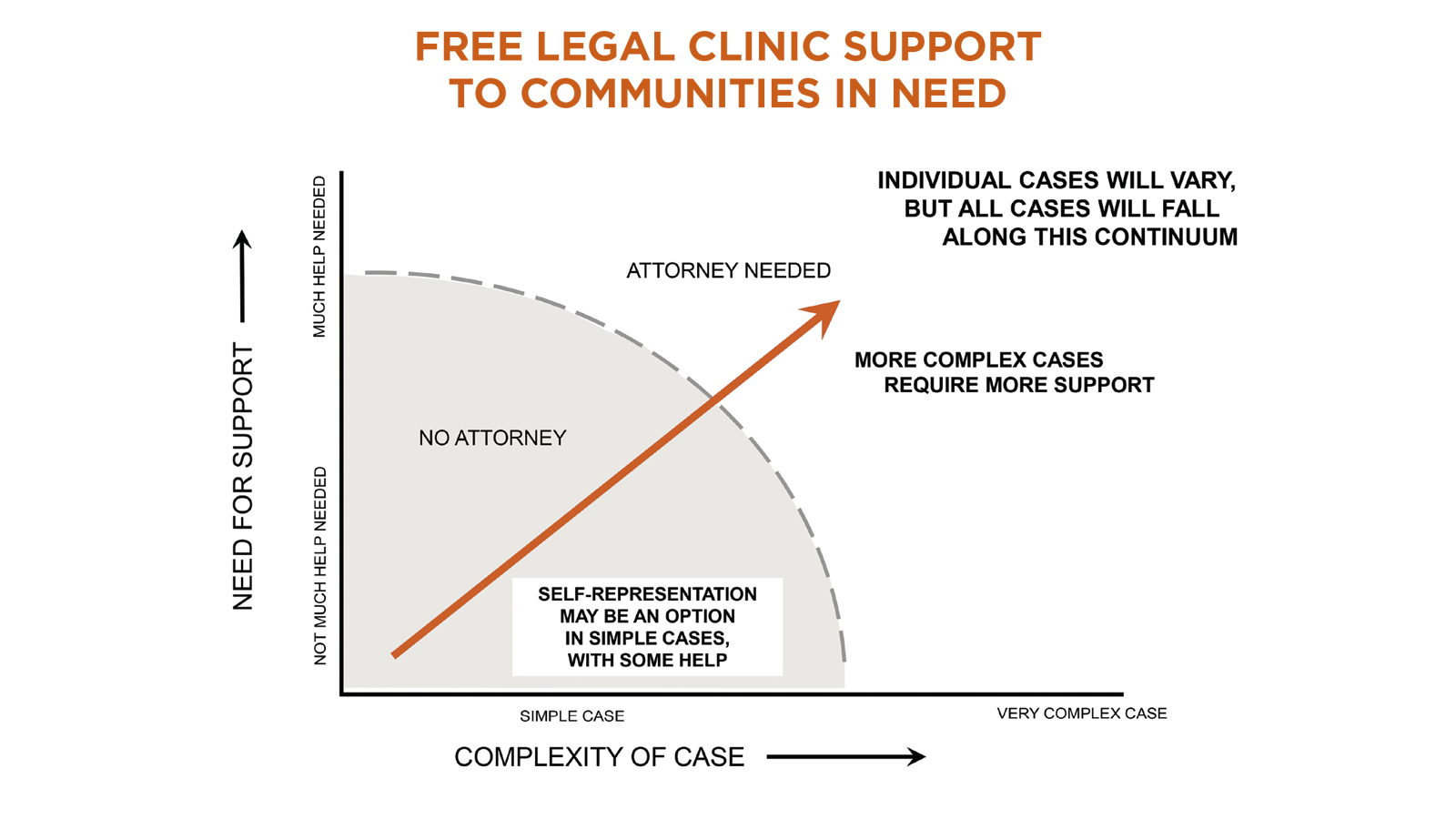
The State of Affairs
The need for critical legal assistance has only intensified during the pandemic as pressures from financial, legal, and medical difficulties mount. For an estimated 108 million Americans, the lapse of eviction protections is a looming threat.7
A recent poll by Stout Risius Ross estimates that 175,000 eviction cases could be filed in Colorado between August and November.8
At the same time, rental industry experts caution that the availability of COVID-19 grant money and market forces operating in the rental industry will blunt the effects of virus-related evictions in Colorado.9 Either way, the sunset of eviction protections is viewed with great concern by the 259,000 Coloradans estimated to be at risk for eviction.10
Whatever lies ahead, Colorado courts will continue to implement a phased expansion of operations aimed at clearing the huge backlog and cope with a wide variety of new cases.11 Large numbers of self-represented parties will be part of that landscape, appearing in cases involving a broad range of issues, including evictions, family law, employment matters, contract disputes and cancellations, domestic violence, bankruptcies, and foreclosures. The vast majority—living both below and above the poverty line—will have pressing legal needs and cannot afford a lawyer.12
Given the pandemic and the gradual implementation of workarounds to keep everyone safe, the clinics described here have undergone many changes. For example, clinics that were conducted last year in person at local libraries transitioned to telephone consultations when the libraries closed their doors. The ingenuity and resourcefulness of many volunteer attorneys made for a smooth transition to all-remote support, and most statewide clinics continue to operate as scheduled. The return to a new normal over the next few months will incorporate many new clinic procedures to keep everyone safe, including a greater reliance on videoconferencing and telephone conferences.
Colorado has two statewide programs that provide free legal clinics for Colorado’s rural communities: Colorado Legal Services and the Virtual Pro Se Clinic program. In addition, local bar associations, pro bono coordinators, local access to justice committees, and the courts’ Self-Represented Litigant Coordinators add free clinic capacity for local communities. All combined, the statewide and local programs deliver 201 monthly free legal clinics to urban and rural communities each month across Colorado.13
Colorado Legal Services
Colorado Legal Services (CLS) is a private nonprofit that provides high-quality civil legal services for as many low-income persons and members of vulnerable populations throughout Colorado as possible.14 CLS plays a critical role in helping the most vulnerable Coloradans maintain the basic necessities of life, including food, shelter, utilities, and medical care. It also works to ensure freedom from domestic violence and abuse, and to protect the individual rights of the elderly and those who are physically and mentally disabled.
The pervasive and compelling need for free civil legal services for Colorado’s low-income individuals and families continues to grow as Colorado’s population expands. CLS is the only agency in the state that provides free civil legal services to clients in every Colorado county.15
Serving a statewide low-income population of over 820,000 with a staff of just over 100 personnel, including 58 attorneys, the geographical and technological challenges are intensified by the lack of adequate funding.16 The program’s largest office is in Denver, with other offices in Alamosa, Boulder, Colorado Springs, Craig, Dillon, Durango, Fort Collins, Grand Junction, Greeley, La Junta, Pueblo, and Salida. CLS partners with independent pro bono programs providing additional services in Alamosa, Colorado Springs, Fort Collins, Grand Junction, Greeley, and Salida.
CLS Rural Clinic Models
CLS has long identified a need for additional outreach for low-income communities in rural Colorado,17 where approximately 16% of its income-eligible clients are located. That vision became a reality in 2014 when CLS was awarded $173,808 as a “Pro Bono Innovation Fund” (PBIF) grant from the Legal Services Corporation (LSC).18
These funds are made available to LSC grantees to encourage innovative approaches to pro bono client services, and to provide the additional resources and time to develop new concepts and experiment with new solutions.
Through a unique partnership with the Colorado Bar Association, two Denver law firms, and metro-area volunteer attorneys, CLS used its initial PBIF grant to develop five clinic models to explore technological options and employ urban pro bono attorneys to expand service to remote rural communities. In 2017, following the successful completion of the 2014 initial PBIF grant, LSC awarded CLS $132,416 in a PBIF Sustainability Grant19 to continue, expand, and replicate the five CLS rural clinic models; fully integrate the clinics into CLS core services; and efficiently deliver legal services through technology enhancements.
The five pro bono clinic models are effective in almost any rural county, regardless of the extent of local attorney and other resources, providing for a more equitable distribution of CLS services across the state.20 Three of the original clinic models use Zoom videoconferencing to connect metropolitan pro bono attorneys with rural low-income clients. One clinic model uses a toll-free telephone line, and one uses only phone and email interaction. These technologies enabled CLS to offer expanded services to rural communities while preserving scarce rural community pro bono and CLS staff resources for cases that require more extensive attention and assistance. These clinics are no substitute for in-person representation by an attorney, but they meet some of the need and complement the services being offered by the very limited number of CLS staff attorneys and pro bono attorneys in rural counties.
These five CLS rural clinic models now serve 42 rural counties:
1. Call4All Clinic. This monthly clinic offers free services to qualifying low-income clients in eight judicial districts covering 23 counties.21 The clinic uses a toll-free telephone line to enable isolated low-income CLS clients to consult with pro bono attorneys from Brownstein Hyatt Farber Schreck. This Denver law firm committed space and technological and pro bono resources to the clinic, which offers assistance with family law, landlord/tenant law, protection order questions, consumer debt collections, probate, and small claims court matters. Since the Call4All Clinic began in 2016, both paralegal students and law students have volunteered to screen callers for eligibility. This initial step ensures that the law firm volunteer attorneys have a basic understanding of the legal issue before they begin the advice call. Due to COVID-19, this clinic has expanded to serve the 5th and the 12th judicial districts because local clinics in those areas are temporarily halted due to library closures. Clients can call (844) 404-7400 the third Wednesday of the month from 5 to 8 p.m.
2. Record Sealing and Expungement Clinic. This clinic serves 10 judicial districts covering 35 counties.22 A CLS paralegal reviews applications, and a CLS attorney provides advice and brief services. The attorney reviews and analyzes whether each case can be sealed or expunged, and prepares petitions for eligible clients. The clinic also collaborates with Self-Represented Litigant Coordinators, who can assist CLS clients with case filing and procedural requirements thereafter. The 2019 changes to Colorado laws eased restrictions on record sealing and expungement and enabled CLS staff to expand their efforts in this area. For more information, call (800) 521-6968.
3. San Luis Valley and 5th Judicial District Legal Clinics. These monthly general legal advice clinics serve all six rural counties in the 12th Judicial District and all four counties in the 5th Judicial District. The clinics are hosted by libraries in Saguache, Blanca, Leadville, and Idaho Springs, and by the CLS Dillon office and the Eagle County Sheriff’s Office. Metro Denver pro bono attorneys advise clients through Zoom videoconferencing on issues including family law, landlord/tenant law, protection order questions, consumer collections, and small claims and probate matters. Due to COVID-19, these clinics are temporarily suspended because of library and office closures; however, the Call4All Clinic has been expanded to serve these counties until they can reopen. For more information, call (719) 589-4993 (San Luis Valley) or (970) 668-9612 (5th JD).
4. Caregiver Clinic. This clinic serves the six rural counties of the 12th Judicial District, offering low-income clients 30- to 60-minute consultations via Zoom with metropolitan pro bono attorneys from Kilpatrick Townsend & Stockton. Clients are referred by the Alamosa CLS office and assisted with adoptions, allocation of parental responsibilities, and guardianships. Volunteer attorneys interview each client and prepare required court forms before returning the case to the CLS Alamosa office for final disposition. For more information, call (719) 589-4993.
5. Family Law Clinic in Cortez. This clinic serves the 22nd Judicial District and is hosted by the Cortez Library. It employs Zoom videoconferencing to connect CLS clients in Montezuma and Dolores counties with metro Denver pro bono attorneys to provide consultations and some document preparation.23 Since 2017, the clinic has accepted clients with all family law (not just post-decree) questions, and has allowed both brief drop-ins (4 to 5 p.m.) and hour-long, pre-scheduled appointments (6 to 7 p.m.). A local non-attorney coordinator assists at each clinic, greeting clinic attendees and assisting with the Zoom videoconferencing. Due to COVID-19 this clinic is temporarily suspended because the library is closed; however, the Call4All Clinic has been expanded to serve these counties until the clinic can resume. For more information, call (303) 866-9384 or (970) 385-7378.
Virtual clinics enable CLS staff and pro bono programs to rely on resources located in regional population centers to serve clients in geographically isolated or less well-resourced areas. CLS looks forward to continued collaboration with the CBA and all its other partners in developing responsive ways to meet the unmet access to justice needs of rural Colorado.
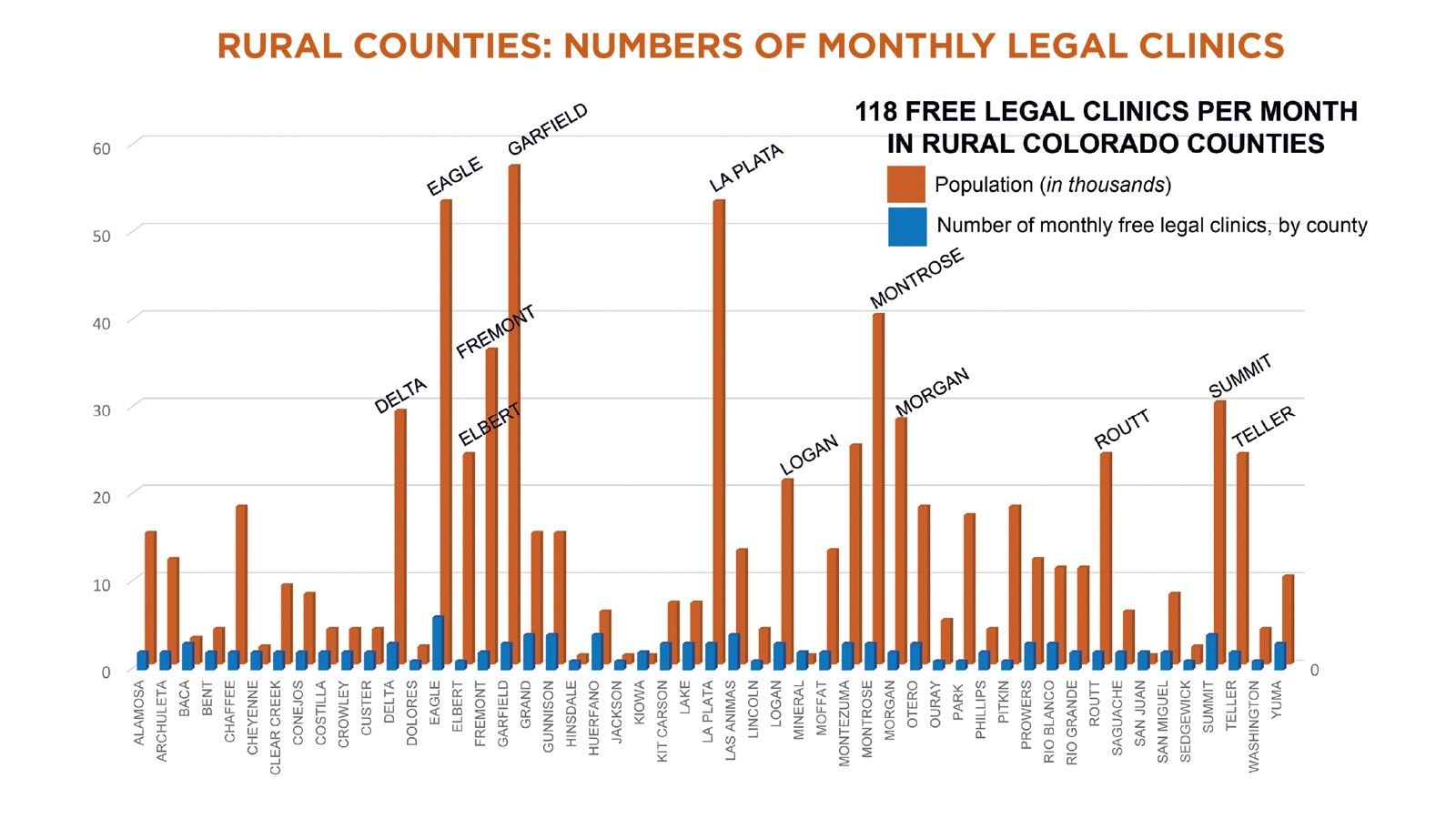
Virtual Pro Se Clinic Program
The Virtual Pro Se Clinic (VPC) program is just one of many pro bono tools developed to address the growing needs of self-represented litigants in Colorado.24 The program’s components are familiar: a few willing and capable volunteers, each firmly committed to the importance of pro bono assistance; a very limited budget; and a vast and pressing need for legal assistance.
The VPC program provides free monthly legal clinics in 35 counties at 46 public libraries supporting 19 of Colorado’s 22 judicial districts, all via Zoom. The program relies on local public library investments in computers, broadband internet, and brick-and-mortar facilities already in place across the state.25 The VPC program is entirely funded by a generous private grant from the Lawrence N. Greenleaf Masonic Lodge in Denver.
By leveraging low-cost, low-risk technology, the VPC program delivers clinics remotely, offering each patron a 20-minute, one-on-one dialogue with a knowledgeable attorney on any Colorado civil subject. Volunteer attorneys support clinics from their law firm, home office, or any location with broadband access and a web-cam equipped device. For more information about any VPC program, call (303) 520-6088.
The CHECKERBOARD Website
Legal assistance for individuals works best when clinic patrons can find what they need, understand what they find, and act on it confidently. Regardless of what that may entail, the VPC volunteer attorney only has 20 minutes to get the message across. To give volunteer attorneys an effective tool to deliver that message, the VPC program launched the CHECKERBOARD website in 2015.
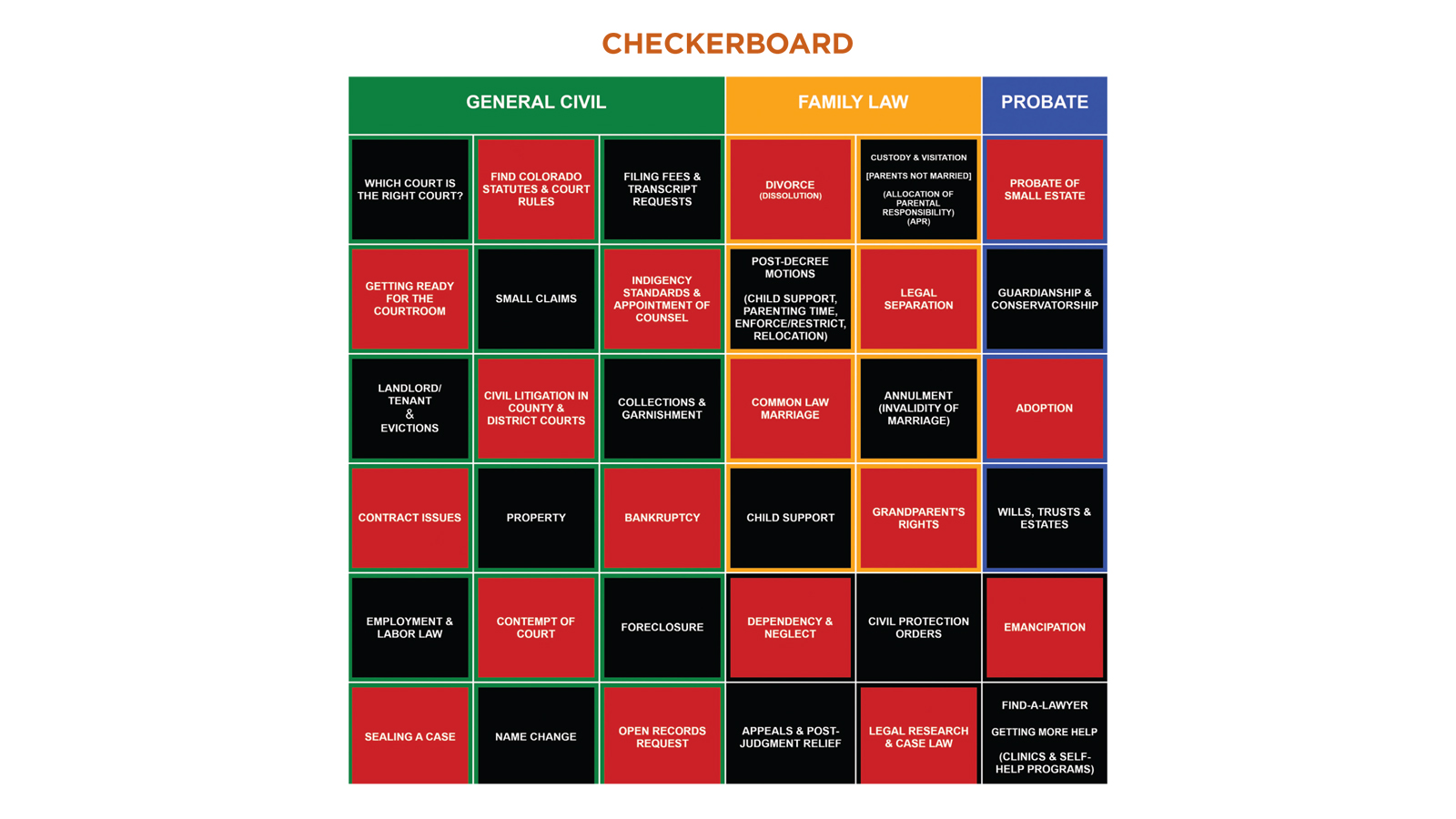
The website, www.checkerboard.co, provides free, one-click access to court forms, statutes, instructions, court rules, flowcharts, videos, and other free information for over 60 different types of Colorado civil issues. It comprises over 800 nested web links, seamlessly connecting to over 160 websites with free information on Colorado civil issues, including the Colorado Courts website, CLS, the CBA, the Colorado Legal Help Center, the Law Library of the Library of Congress, and many others.
The website also allows clinic patrons to revisit materials after the clinic, giving them a better opportunity to understand the materials and effectively apply them in their case. It is an important example of the new and innovative tools created to assist communities in need across Colorado.
Metro Volunteer Lawyers
Metro Volunteer Lawyers (MVL) is the Denver Bar Association’s pro bono program and is supported by the bar associations in Adams, Broomfield, Denver, Douglas, Elbert, Gilpin, and Jefferson counties. MVL provides free and low-cost civil legal services through multiple programs in the Denver metro area. MVL is best known as the state’s largest pro bono program,26 coordinating full representation by hundreds of volunteer attorneys in the Denver metro area and providing full representation to approximately 1600 low-income clients per year. But MVL also operates five free legal clinic programs in the metro area for indigent parties:
- Family Law Court Program (FLCP). Assists parties with uncomplicated, uncontested divorce or custody matters where the other party is not represented by an attorney.
- Post-Decree Clinic. Assists individuals with legal problems arising after permanent orders in a dissolution of marriage or allocation of parental responsibilities case.
- Denver Indian Center Legal Clinic. Assists with resource referral, understanding the legal process, and how to proceed as a pro se party.
- Power of Attorney Workshop. Helps seniors complete advance planning documents including medical power of attorney, financial power of attorney, and living wills.
- Family Law Unbundled Clinic. Provides unbundled legal services for dissolution of marriage or allocation of parental responsibility cases by focusing on problem-solving, negotiation assistance, court preparation, mediation, and settlement conferences.
For more information about schedules and locations for any of MVL’s clinic programs, visit https://www.denbar.org/Metro-Volunteer-Lawyers/I-Need-Help or call (303) 837-1313.
MVL has a variety of volunteer opportunities for attorneys, mediators, paralegals, and law students. Volunteers help stabilize families, save taxpayers money, reduce the number of cases clogging the courts, and help people move toward self-sufficiency. Interested volunteers may visit https://www.denbar.org/Metro-Volunteer-Lawyers/Volunteer for more information.
Statewide Pro Bono Projects
Most of the programs available to self-represented litigants in Colorado offer assistance outside the courtroom. But some cases require an attorney. In addition to the free clinic programs discussed above, Colorado has 16 pro bono projects serving 53 of Colorado’s 64 counties.27 These projects deliver a broad variety of free legal assistance, including full representation by volunteer attorneys.28
Western Colorado
Nine of the 16 pro bono projects are in Western Colorado:
- Alpine Legal Services. Serves Garfield, Pitkin, and Western Eagle counties. For more information, call (970) 945-8858 or visit https://alpinelegalservices.org.
- Dillon Colorado Legal Services. Serves Clear Creek, Gunnison, Pitkin, and Summit counties. For more information, call (800) 521-6968.
- Heart of the Rockies Bar Association Pro Bono Program. Serves Chaffee County. For more information, call (719) 539-4251.
- Mesa County Bar Association Pro Bono Project. Serves Mesa County. For more information, call (970) 424-5748 or email contact@probonomc.org.
- Northwest Colorado Legal Services. Serves Eagle, Lake, Routt, Grand, Jackson, Moffat, and Rio Blanco counties. For more information, call (800) 521-6968.
- San Luis Valley Bar Association Pro Bono Project. Serves Alamosa, Conejos, Costilla, Mineral, Rio Grande, and Saguache counties. For more information, call (719) 589-4993.
- Alamosa Colorado Legal Services. Serves Alamosa, Conejos, Costilla, Mineral, Rio Grande, and Saguache counties. For more information, call (719) 589-6534 or email slvprobono1@hotmail.com.
- Southwest Bar Volunteer Legal Aid. Serves Archuleta, La Plata, and San Juan counties. For more information, visit https://southwestbarvolunteerlegalaid.wordpress.com or call (970) 247-0266.
- Uncompahgre Volunteer Legal Aid. Serves Montrose, Ouray, Delta, and San Miguel counties. For more information, call (970) 249-7202 or visit https://uvlamontrose.org.
Eastern Colorado
The remaining seven pro bono projects are in Eastern Colorado:
- Boulder County Legal Services. Serves Boulder County. For more information, call (303) 449-7575.
- Larimer County Bar Association Pro Bono Project. Serves Larimer County. For more information, call (970) 402-2075 or visit https://www.larimerbar.org/pro-bono.
- La Junta CLS Office. Serves Baca, Bent, Cheyenne, Crowley, Huerfano, Kiowa, Kit Carson, Las Animas, Otero, and Prowers counties. For more information, call (888) 805-5152.
- Metro Volunteer Lawyers. Serves Adams, Broomfield, Denver, Douglas, Elbert, and Jefferson counties. For more information, call (303) 837-1313 or visit https://www.denbar.org/mvl.
- Pikes Peak Justice and Pro Bono Center. Serves El Paso and Teller counties. For more information, call (719) 473-6212 or email probono@elpasocountybar.org.
- Pueblo County Pro Bono Project. Serves Pueblo County. For more information, call (719) 545-6708 or visit grodosevich@colegalserv.org.
- Weld County Legal Services. Serves Weld County. For more information, call (970) 310-8367 or email vtaylor.wcls@gmail.com.
Self-Represented Litigant Coordinators
Since 2013, Self-Represented Litigant Coordinators, or “Sherlocks,” have been assisting self-represented parties in courthouse Self-Help Centers in all Colorado judicial districts. Sherlocks are court staff who provide self-represented parties with legal information, assistance with procedural issues, and resources offered by the court as well as outside organizations, but they cannot provide legal advice.29 Colorado Chief Justice Directive 13-01 spells out the services that a Sherlock can and cannot provide.
In 2018, Sherlocks assisted approximately 150,000 self-represented parties in courthouses across Colorado, and assisted over 168,000 in 2019.30 Using 2018 data, Sherlocks assisted nearly one-quarter of all self-represented parties estimated to be appearing in Colorado courts without an attorney.31 This is by far the most public contact of any pro bono program in Colorado.
In 2015, then-Colorado Supreme Court Chief Justice Nancy E. Rice hailed the Sherlock Program as a “tremendous success.” According to Justice Rice, “[w]ithout the assistance of Sherlocks, many self-represented individuals may have decided the court process was too complicated and walked away or, alternatively, proceeded without guidance, requiring court clerks, judges, and other staff members to provide piecemeal guidance and correct erroneous filings.”32
All 22 Colorado judicial districts have at least one Sherlock for their courthouse Self-Help Centers. The statewide Sherlock list with contact information, locations, and hours can be found at https://www.courts.state.co.us/userfiles/file/Self_Help/Contact%20list%20for%20public(17).pdf.
Veterans Clinics
In addition to the general civil legal clinics described above, Colorado currently has three free monthly legal clinics for military veterans. Two are part of the CBA’s Colorado Lawyers for Colorado Veteran’s (CLCV) initiative, while the third was created by the Arapahoe County Bar Association (ACBA), in partnership with the Rocky Mountain Regional Veterans Administration (VA) Medical Center.
CLCV Clinics
CLCV is a general legal referral program that provides free and low-cost legal services to active duty military, veterans, and veteran-related cases that are referred to the CBA by veteran service agencies. Managed by the CBA Military and Veterans Affairs Section, it is intended to assist veterans in understanding the legal process and forms.33 For select cases, some CLCV volunteer attorneys will provide full representation, including court appearances.
In normal times, the CLCV’s two veterans clinics are held in Denver at the Bill Daniels Veterans Center, and in Colorado Springs at the Colorado Springs VA Medical Center. However, in light of COVID-19, both are being held virtually at this time. In addition, a third CLCV clinic is being planned for Grand Junction to reach a more underserved area.
ACBA/VA Clinic
Colorado’s third free legal clinic for veterans was established as a partial medical-legal partnership between the ACBA and the VA. One goal of medical-legal partnerships is to mitigate or alleviate medical issues through legal assistance. For example, if a veteran is living in an apartment with mold that the landlord will not address, the veteran may continue to return to a hospital for medical treatment. Providing the veteran legal information or the assistance of an attorney who can help coordinate with the landlord to alleviate the mold and move the veteran to a safe apartment under the warranty of habitability, can do more to address the health issue than repetitive medical treatment. Social workers play a critical role in a medical-legal partnership because they have an established relationship with the veteran and can aid in effective communication strategies and help with non-legal aspects of resolving the legal issue. Because of the ACBA/VA partnership, many veterans can navigate the foreign territory of the court system with a guide.
The ACBA/VA clinic has been operating virtually since it began on April 15, 2020. However, when community safety allows, the clinic will transition to an in-person setting at the Rocky Mountain VA Regional Medical Center in Aurora. Because of the limited virtual nature of the clinic, the consults are only available through VA referral at this time. When the clinic transitions to an in-person setting, veteran eligibility will be expanded and the clinic will begin using the CHECKERBOARD website.
The ACBA/VA clinic currently seeks attorney volunteers in all practice areas to provide legal information to veterans in need. The meetings are held telephonically through the VA teleconference system for confidentiality, and volunteers are matched with individuals whose legal issue corresponds with their practice areas. Volunteers can make a tremendous impact on a pro se veteran’s life. They are also eligible for CLE credit for their volunteer service. Interested attorneys should contact Sabra Janko, clinic coordinator, at sabra@jankolaw.com or (720) 780-0115, or complete the volunteer intake form on the ACBA website at https://www.arapahoecountybar.org/page-18054.
Conclusion
Innovation has firmly taken root in Colorado to address the growing needs of self-represented litigants and to deliver effective free legal assistance to communities in need, no matter where they are. Over time, pro bono support remains a vital mechanism among the constellation of tools to ensure access to justice.34 The advent of new technologies may change the shape of those efforts and make them easier, but it takes volunteer pro bono attorneys to engage and support the communities that need their help the most.
Related Topics
Notes
1 Engler, “Turner v. Rogers and the Essential Role of the Courts in Delivering Access to Justice,” 7 Harv. Law & Pol’y Rev. 31, 45 (2013).
2 Gray, “Reaching Out or Over-Reaching: Judicial Ethics and Self Represented Litigants,” State Justice Institute (2005) (citing Goldschmidt et al., “Meeting the Challenge of Pro Se Litigation,” American Judicature Society (1998)).
3 These numbers were drawn in part from 2013–2019 Annual Statistics Report, Colorado State Judicial Statistics, by Fiscal Year; and 2013–2018 Annual Pro Se Report, Cases and Parties Without Attorney Representation in Civil Cases [in Colorado], by Fiscal Year, https://www.courts.state.co.us/Administration/Unit.cfm?Unit=annrep. However, from 2013 to 2018, numbers of self-represented parties in Colorado courts were reported for only about one-third of the total cases filed. Nevertheless, a lower boundary for the total numbers of pro se parties for all case types can be estimated. For the detailed methodology used to arrive at these numbers, please contact Ric Morgan at morgan@hayday.org.
4 Foreword by Chief Justice Nathan B. Coats, 2019 Colorado Judicial Branch Annual Statistical Report at i (2019), https://www.courts.state.co.us/userfiles/file/Administration/Planning_and_Analysis/Annual_Statistical_Reports/2019/FY2019AnnualReportFINAL.pdf.
5 Owens et al., “Access to Justice: Meeting the Needs of Self-Represented Litigants,” Chicago-Kent College of Law (2002).
6 Asher et al., “The Challenges of Serving Rural Colorado,” 46 Colo. Law. 16, 19 (July 2017).
7 Dougherty, “Millions of Evictions are a Sharper Threat as Government Support Ends,” N.Y. Times (Aug. 7, 2020).
8 Stout Risius Ross, LLC, “Estimates of Households Experiencing Rental Shortfall and Potentially Facing Evictions” (data through July 29, 2020), https://bit.ly/3nhW5yp.
9 Hamrick, “Upcoming Colorado Evictions: The Sky is Not Falling,” Colo. Real Estate J. (July 29, 2020). See also Davies, “Three Solutions for Safeguarding the Affordable Housing Supply,” Rental Housing J. (Aug. 14, 2020).
10 Stout Risius Ross, LLC, supra note 8.
11 See, e.g., “Class Action Litigation Related to COVID-19: Filed and Anticipated Cases,” Nat’l L. Rev., vol. 10, no. 229 (Aug. 16, 2020).
12 Sandefur, “Access to Civil Justice and Race, Class, and Gender Inequality,” 34 Ann. Rev. Soc. 339, 341 (2008) (“We know that civil justice problems occur across a range of issues in contemporary life and are ubiquitous across the population, including among people who are above the poverty line but nevertheless unable to afford a lawyer.”).
13 Clinic numbers are compiled from listings published by CLS, the Colorado Legal Help Center, MVL, the CHECKERBOARD website, pro bono coordinators, and the 10 major urban bar associations statewide. These clinic numbers only reflect recurring monthly clinics. Some recurring clinics, like quarterly clinics, are not included.
14 CLS Private Attorney Involvement Plan 2020 (draft) at 1 (2020). See also Jon Asher’s Presentation to the Colorado Access to Justice Commission Hearing at Centennial, Colo. (Sept. 24, 2013) (both on file with the authors and available on request).
15 Hart, “Deep Impact: The Consequences of Defunding LSC,” 46 Colo. Law. 72 (Aug. 2017).
16 Asher et al., supra note 6 at 19; Gast, “Access to Justice Heroes: Diana Poole and John Asher,” 46 Colo. Law. 4, 6 (Oct. 2017) (quoting Jonathan Asher: “We strive to be good stewards of scarce resources.”).
17 Asher et al., supra note 6.
18 LSC, Pro Bono Innovation Fund Grants 2014 (2014), https://www.lsc.gov/pro-bono-innovation-fund-grants-2014.
19 LSC, Pro Bono Innovation Fund Grants 2017 (2017), https://www.lsc.gov/pro-bono-innovation-fund-grants-2017.
20 CLS, 2014 PBIF Grant Application to LSC at 3 (June 2014).
21 The Call-4-All Clinics provide services in the 3rd, 9th, 8th, 13th, 14th, 15th, 16th, and 22nd judicial districts, in Baca, Bent, Crowley, Cheyenne, Crowley, Dolores, Grand, Huerfano, Jackson, Kit Carson, Kiowa, Las Animas, Logan, Moffat, Montezuma, Morgan, Otero, Phillips, Prowers, Rio Blanco, Routt, Sedgwick, Washington, and Yuma counties.
22 The Record Sealing and Expungement Clinic provides services in Baca, Bent, Chaffee, Cheyenne, Clear Creek, Crowley, Custer, Delta, Eagle, Fremont, Grand, Gunnison, Hinsdale, Huerfano, Jackson, Kiowa, Kit Carson, Lake, Las Animas, Logan, Moffat, Montrose, Morgan, Otero, Ouray, Park, Phillips, Prowers, Rio Blanco, Routt, San Miguel, Sedgwick, Summit, Washington, and Yuma counties.
23 See https://coloradojcf.org/wp-content/uploads/2019/03/Cortez-Clinic-Flyer.pdf.
24 Information about any VPC clinic can be found by visiting www.checkerboard.co and selecting the “Getting More Help” square in the bottom-right corner of the checkerboard.
25 Sandefur and Smyth, “Access Across America: First Report of the Civil Justice Infrastructure Mapping Project,” American Bar Foundation (2011) (“The existing civil legal assistance infrastructure is, in effect, the output of many public-private partnerships, most of them on a small scale.”).
26 Taubman, “Has the Time Come to Revise our Pro Bono Rules?,” Denv. U. L. Rev. vol. 97, iss. 2, at 435 (Mar. 2020).
27 Counties outside the service area of Colorado’s 16 pro bono projects are Arapahoe, Custer, Fremont, Hinsdale, Lincoln, Logan, Morgan, Phillips, Sedgwick, Washington, and Yuma.
28 See https://www.cobar.org/For-Members/Pro-Bono-Opportunities/Statewide-Pro-Bono-Opporunities#8957259-greater-colorado–. See also Van Atta, Colorado Access to Justice Commission’s Colorado Local Access to Justice Reports 2015, http://www.coloradojustice.org/portals/16/repository/2015%20Local%20ATJ%20Report%20Summary.pdf.
29 Knowlton, “Looking Back at Two Years of Colorado’s SRLC Program,” IAALS Blog (Dec. 16, 2015), https://iaals.du.edu/blog/looking-back-two-years-colorado-s-self-represented-litigant-coordinator-program.
30 Self-Help Information/Statistics, Statewide Numbers of SRLC Contacts in Self-Help Centers, by year, https://www.courts.state.co.us/Self_Help/information.cfm. See also Coats, FY 21 Judicial Department Budget Request at 8 (Nov. 1, 2019).
31 In 2018, there were an estimated 150,000 Sherlock contacts out of an estimated 631,464 total number of self-represented parties (23.7%). See 2013–2019 Annual Statistics Report, Colorado State Judicial Statistics, by Fiscal Year; and 2013–2018 Annual Pro Se Report, Cases and Parties Without Attorney Representation in Civil Cases [in Colorado], by Fiscal Year, https://www.courts.state.co.us/Administration/Unit.cfm?Unit=annrep.
32 Rice, “Sherlocks Provide Valuable Support for Self-Represented Litigants,” 44 Colo. Law. 85 (Nov. 2015).
33 See https://www.cobar.org/For-members/pro-bono-opportunities/colorado-lawyers-for-colorado-veterans. See also https://www.cobar.org/For-Members/CBA-Sections/Military-Veterans-Affairs.
34 Hembroff et al., “. . . And Justice For All—A Report on Pro Bono in Michigan: 2007,” State Bar of Michigan and Institute for Public Policy, Michigan State U. (Dec. 2009) (“A nation can claim to believe in “justice for all”, but theory and practice, rhetoric and fact must be aligned for these claims to be meaningful. The legal system has, over time, developed a constellation of mechanisms to assure minimal access to justice. Pro bono work by private lawyers is a critical part of that constellation of mechanisms.”).

